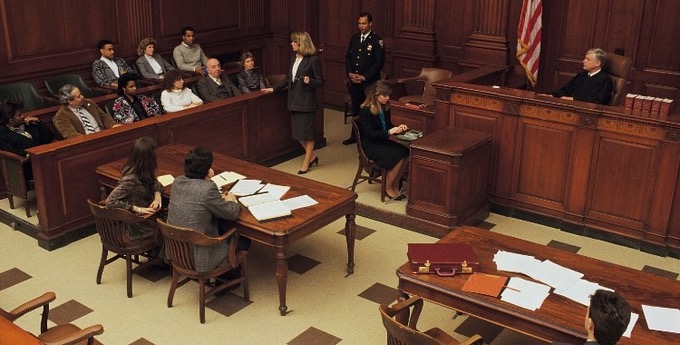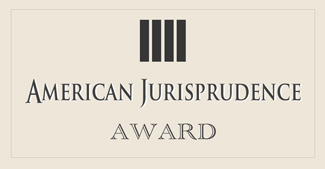Utah Court Sentencing
While it’s important to talk with experienced criminal defense lawyers during the sentencing process, the basics of sentencing are fairly simple. Once a defendant has been convicted of a crime (or entered a guilty plea), the next step is sentencing. This is where the judge or jury will decide on the punishment. There are a few sentencing guidelines that are going to play a role.
What is the Court Sentencing Process?
Sentencing occurs after guilt has been determined either by a trial or when the defendant pleads guilty or no contest. Once this happens, the judge will describe the punishment which is also known as the sentence. Minor crimes and misdemeanors may bring about quicker sentencing once guilt has been determined by trial, admission, or plea. However, more severe cases with stronger penalties may lead to a longer sentencing period. The judge may wait anywhere from a few days to weeks to bring about the sentence. If this occurs, the sentencing happens during a special sentencing hearing. This allows a probation officer time to review the case and provide an investigative report to the judge. This report provides a sentencing recommendation based on the individual’s history and whether certain factors should reduce or increase the sentence. This includes past crimes, mental health status, and the prospect of repeat offenses.
The judge will create the sentence in accordance with the Utah Sentence and Release Guidelines. These guidelines feature mitigating and aggravating factors that help to determine the final sentencing.
Capital Case vs. Non-Capital Case Sentencing in Utah
The sentencing process in the state of Utah is going to vary depending on the nature of the crime. In general, cases are going to be divided into two separate categories. The first is non-capital cases which do not include capital cases. The other is a capital case where the defendant might be sentenced to death.
In a non-capital case, the defendant has the right to be sentenced between two and 45 days after the conviction. This right can be waived if the defendant needs more time or if the defendant wants to be sentenced immediately. The judge may order a report prepared by the Department of Corrections in the case of a felony. The defendant may also decide to speak at the sentencing.
In capital cases, the process is similar; however, a jury or judge will be asked to listen to both the defense and prosecution. Then, the judge or jury will decide whether a life sentence or death penalty sentence is warranted.
What are Aggravating and Mitigating Factors?
Many people have questions about what aggravating and mitigating factors entail. To put it plainly, aggravating factors will make the sentence more severe while mitigating factors will lighten the sentence. There are numerous facts and details that might be interpreted as mitigating or aggravating factors. This will depend on the nature of the offense.
Some of the most common mitigating factors include:
- Being a child at the time the crime was committed
- Showing remorse for what happened
- Having simple possession instead of intent to distribute
- Committing a crime that did not cause serious harm
- Compelling grounds (or reasons) for the crime are present
On the other hand, some of the most common aggravating factors include:
- Creating or inciting violence during the crime
- Targeting someone who was especially vulnerable
- Causing extensive or severe property or bodily injury
- Being charged with multiple crimes
- Committing a hate crime
- Targeting multiple victims during the commission of the crime
- These aggravating factors can lead to a worse sentence.

Does Utah Have a Mandatory Minimum Sentence?
In some cases, the prosecutor might be amenable to a lighter sentence; however, some crimes have mandatory minimums which means the sentence cannot be reduced or replaced with probation under any circumstance.
Some of the crimes for which a mandatory minimum is present include:
- Aggravated murder
- Aggravated sexual assault
- Aggravated sexual abuse of a child
- Aggravated kidnapping
- Murder
- Rape of a child
- Sodomy of a child
- Object rape
- Forcible sexual abuse
There are other crimes in Utah that have mandatory minimum sentencing guidelines; however, these are just a few of the most prominent examples.
How Long Does a Courts Sentencing Take in Utah?
While each criminal case is different, sentencing may take just a few moments should the defendant agree to the terms of the plea deal. A judge may agree to things like a standardized fine, suspended jail time, or probation duration assuming the case is clear-cut. Sometimes felony cases can have short sentencing times assuming the plea bargain is accepted.
Even though sentencing can be quick, it can also take a long time due to several factors. When a crime brings about a lengthy prison sentence, the judge may take longer to accurately sentence the convicted. The presentence investigative report may be questioned by both the defense and prosecution to judge its accuracy and recommendations. This process alone can take an extended amount of time, although it’s necessary to ensure a fair and lawful sentence.
What Happens at a Court Sentencing Hearing in Utah?
Judges must consider a number of things when creating the final sentence. A sentencing court hearing allows the judge to weigh numerous factors before deciding on the sentence, including oral statements from the defense, prosecution, and defendant should they wish to speak. The probation office will also provide a presentence investigative report during the open court hearing. During the hearing, the prosecutor will go over the various aspects of the crime along with any previous criminal behavior of the defendant. The defense counsel will attempt to lessen the sentence while also ensuring that the prosecutor does not misrepresent the defendant or their actions. However, any factual disputes must be addressed before the sentencing hearing.
The defense counsel must stick to facts and not methods of emotional persuasion while attempting to lessen the sentence. This rule also applies to the prosecution. The defendant does have the right of allocution which means they may bring their own emotions and point of view into context before the judge. While there is legal protection which ensures the defendant may speak, it’s important that they work with their defense lawyers beforehand to prepare a speech. In some cases, silence may be preferable.
Victim Impact Statements
The victim may be invited to speak before the judge to talk about the crime’s impact on their life. This may include immediate and long-term impacts along with how it affects their daily life. These statements are often intended to influence the judge’s decision in providing a harsher sentence. In addition, the victim will likely have met with the probation department to give a similar account of events that will be included in the investigative report. Depending on the crime and jurisdiction, victims may be qualified for restitution or assistance from applicable funds.

What Happens After Sentencing? Do You Get Time to Get Ready for Prison?
Many people ask, “what happens after you are sentenced to prison?” Once the sentencing process is complete, the judge will determine whether the convicted is instantly reminded or allowed to self-surrender. Self-surrendering allows the convicted to return home, take care of any necessary business, and see friends or family before carrying out the sentence. Once the decided time frame is complete, the convicted must arrive at the prison to start their sentence. The Bureau of Prisons will determine where the prison term will take place along with other logistics. Should the convicted be remanded, the US Marshall Service will provide travel to the prison right from the courthouse.
Appeals
Unless the judge initially provided a right to appeal, there is no legal right to appeal after a guilty plea or statement of no contest. If convicted and desiring an appeal, the prisoner must file a notice of appeal within 30 days after the initial sentencing. They must also provide the appellate court a list of any all errors that took place during the trial. The burden is on the prisoner and attorney to prove that the judge made a mistake that changed the outcome of the case. These errors must have legal standing as emotional appeals will not work. Commonly, these errors include any illegality during the trial, no matter how small, or any instances where the defendant was not able to exercise their constitutional rights. While it’s possible that they may be released on bail while the appellate court reviews the appeal, this is often not the case. If the judge finds merit in the appeal and has a strong reason to believe that they will return to court, then a bond may be set and bail may be granted. However, there is no legal right to have a bond granted and it remains in the judge’s discretion. Sometimes, the sentence may start while the appeal is in motion.
Safeguard Your Rights with the Wasatch Defense Lawyers
If you have been accused or convicted of a crime in Utah, you need the help of trained, experienced, and compassionate defense attorneys. We will work hard on your behalf to get a reduction of charges, keep you out of jail, and keep you out of the registry. Contact us today to learn more about how we can help you.



